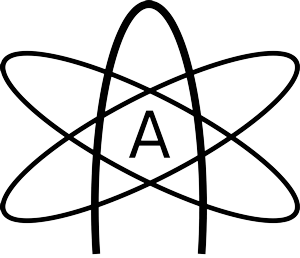
Debate has long raged over whether or not Atheism is a religion. Most Christians claim that it is; atheists, on the other hand, will say that it is not. Atheism is a broad term. Some atheists have beliefs quite different from other atheists. However, all atheists hold in common two “beliefs”:
- Atheists do not believe in the existence of a God or gods.
- Atheists do not believe in an afterlife. Thus, death is the end.
The lack of belief in a God or gods does not necessarily mean that atheists are immoral or lack belief in everything.
One scholar conducted an informal survey of atheists in which he asked them: “Out of everything in the entire universe, would you say that you know 1% of everything there is to know?” All surveyed confessed that they probably knew less than 1% of everything there is to know.
Then he asked, “Of the 99% of the universe of which you know nothing, would you admit it is possible that a supreme Deity exists?” Of all those surveyed, only one still insisted that there was no possibility whatsoever that a God existed. Everyone else admitted that yes, it was possible.
“Then,” the scholar concluded, “You are not atheists. You are truth seekers.”
Most atheists are committed to knowing truth and they take responsibility for studying it out for themselves. Many who cling to erroneous traditions in their own belief systems would do well to emulate the principles atheists use in their pursuit of truth:
- Just because something is popular does not mean it is good.
- Do not believe things just because you want them to be true.
- There is more to moral behavior than mindlessly following rules.
- Search for what is true, even if it makes you uncomfortable.
Ultimately, what one believes must be based, to some degree, on trust that the information presented is correct. What a person has not experienced or witnessed for himself will rest, in the end, on the word of another, whether that is the physicist who conducted the newest experiment discussed in the latest scientific journal, or an author of one of the books of the Bible.
WLC believes in the existence of one Supreme Deity: Yahuwah, Creator of the heavens and the earth. WLC also freely acknowledges that there is a tremendous amount of error in the various belief systems that comprise the world’s religions. This period of earth’s history is wrought with importance. It is vital that all know and understand for themselves precisely what is truth.
WLC would like to invite intellectually honest atheists to study the evidence we hold as truth. So strong is truth, that it can bear the weight of investigation. No one is expected to accept on “blind faith” what is illogical or contradictory. Pure truth is never contradictory. It only appears contradictory if it is entwined with error or incomplete information.
On that which, by its nature, lacks empirical evidence, we invite truth seekers to rest on the weight of evidence. The Creator Himself has pledged to provide sufficient evidence to all who ask for it. He invites: “Come now, let us reason together.” (Isaiah 1:18) He who created the human mind has pledged that He will supply sufficient evidence to convince those who study with an open mind.
WLC challenges atheists to consider the evidence. The truth, the whole truth and nothing but the truth is waiting for those who do.







